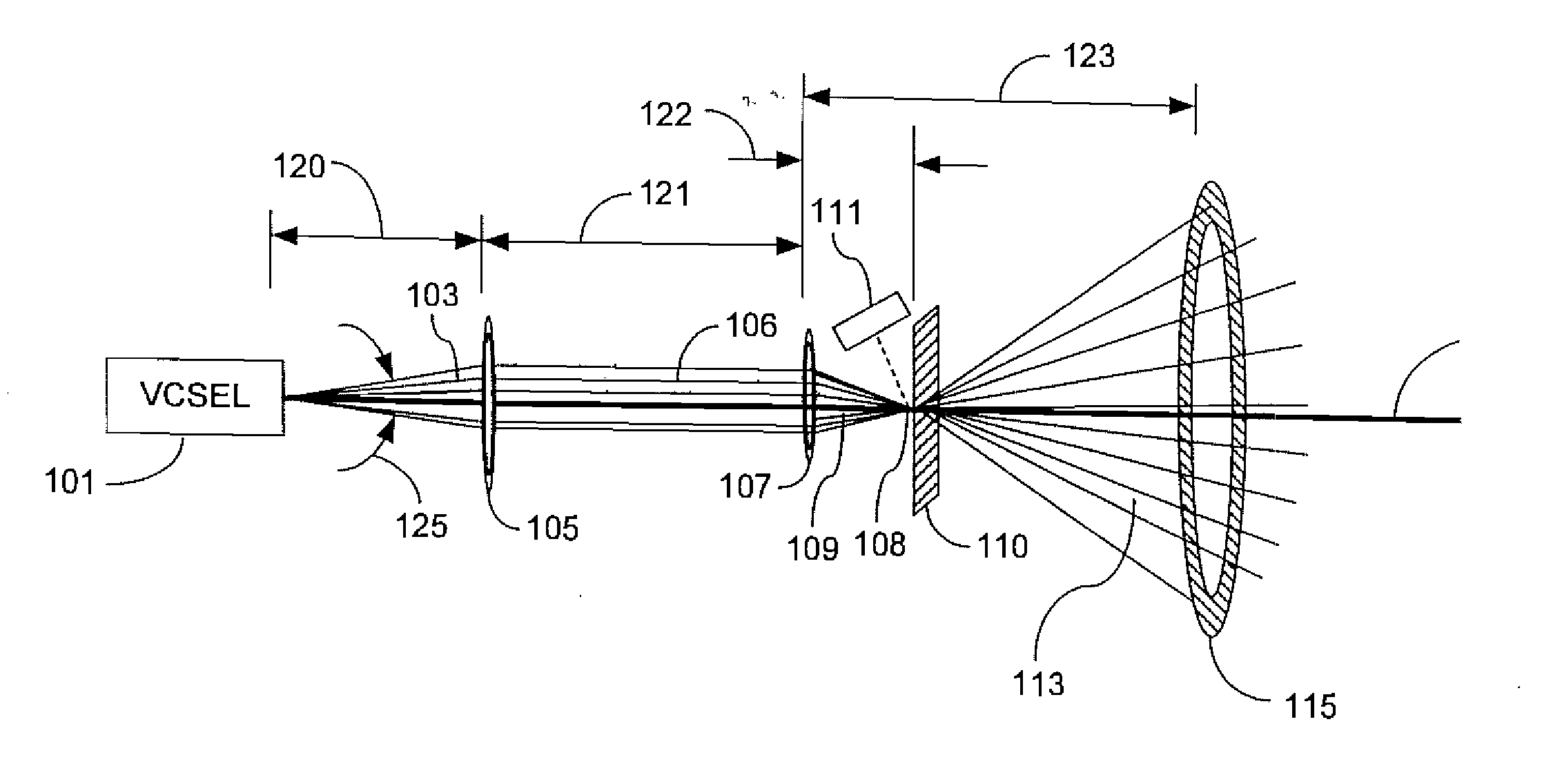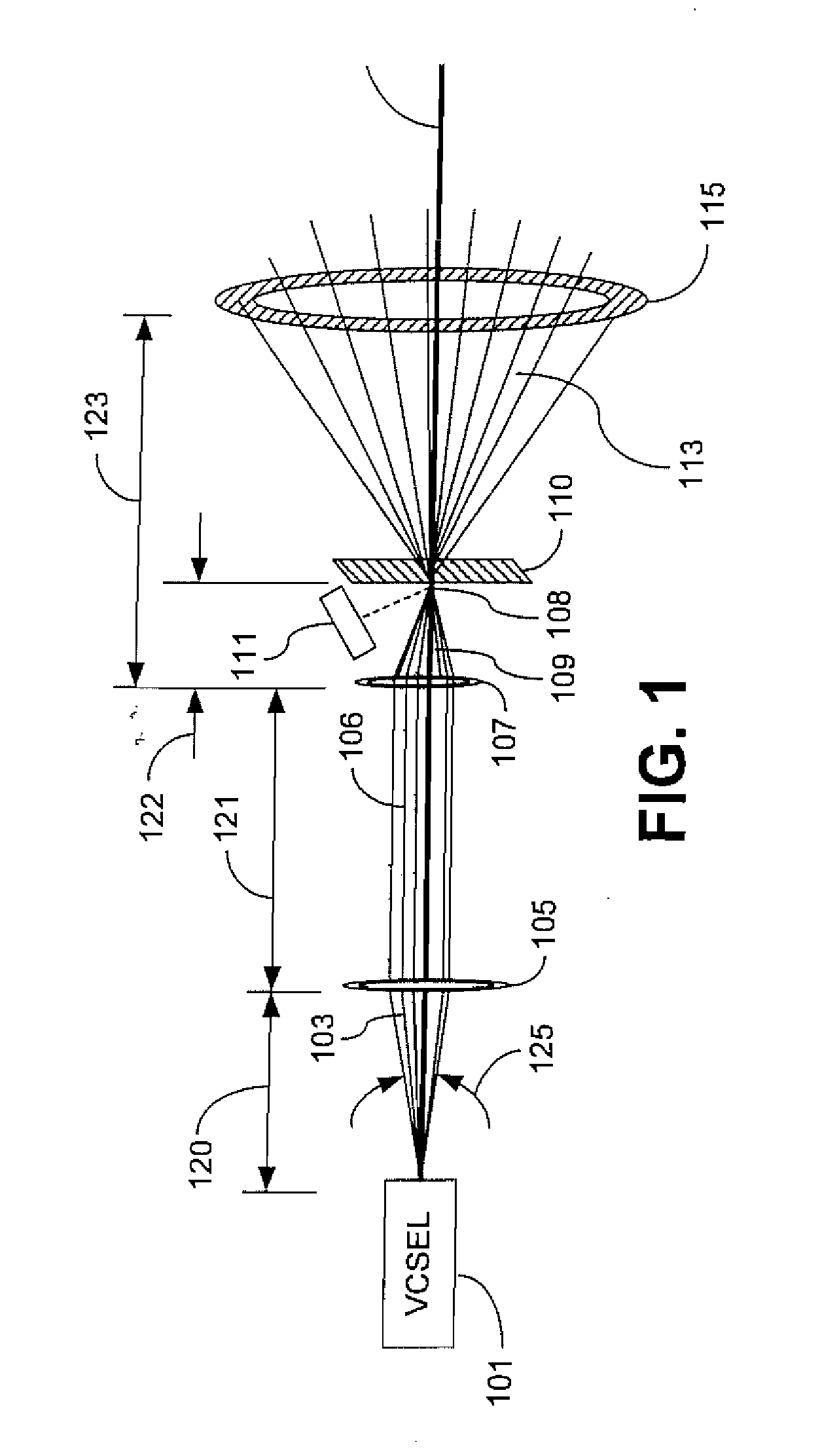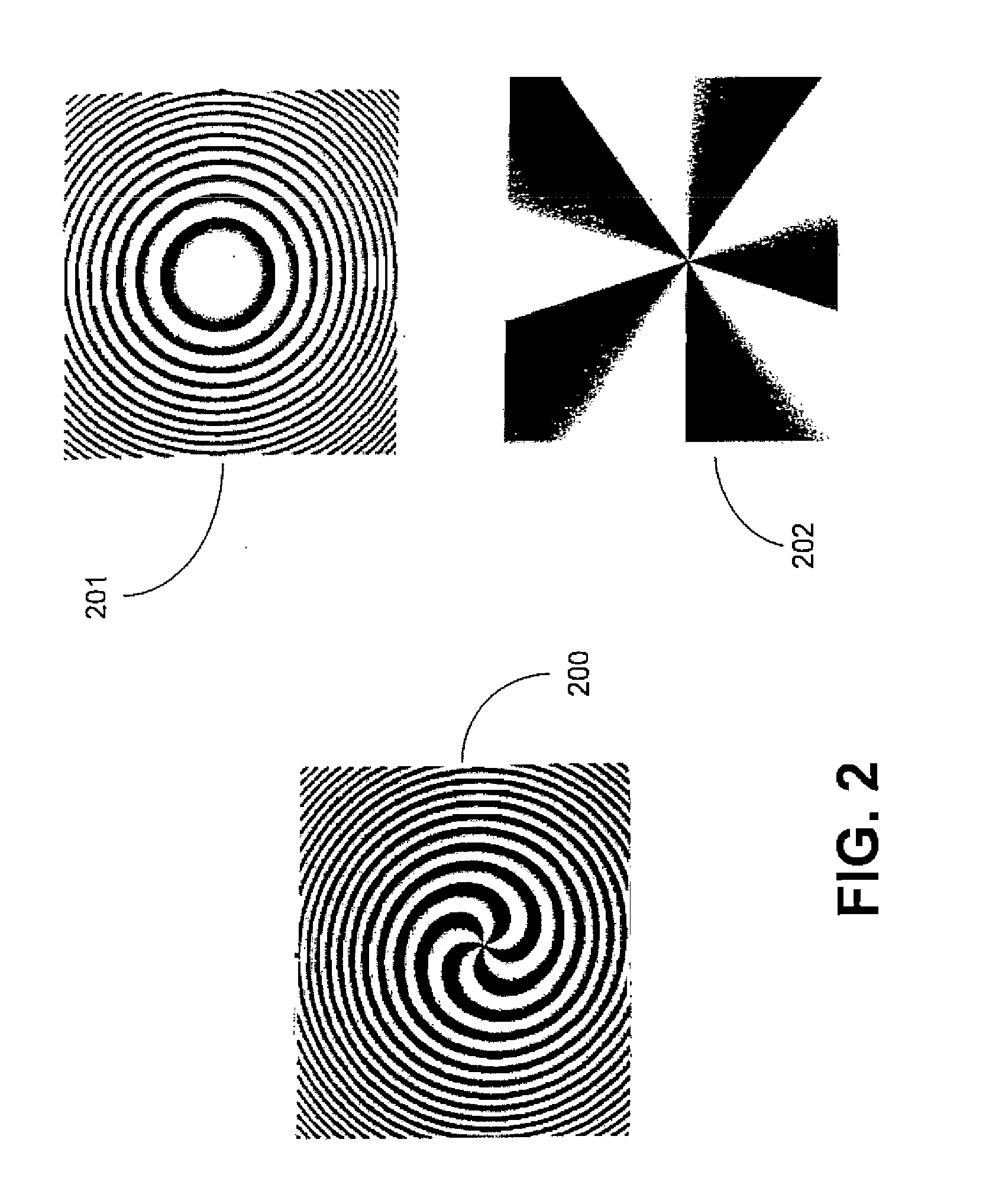Method and apparatus for modifying the spread of a laser beam
a laser beam and laser beam technology, applied in the direction of lasers, semiconductor laser optical devices, underwater structures, etc., can solve the problems of potentially hazardous products containing laser devices for the eye, and the performance of speckle-based motion sensors may not be at an acceptable level
- Summary
- Abstract
- Description
- Claims
- Application Information
AI Technical Summary
Benefits of technology
Problems solved by technology
Method used
Image
Examples
Embodiment Construction
[0018] The following discussion is presented to enable a person skilled in the art to make and use the invention. The general principles described herein may be applied to embodiments and applications other than those detailed below without departing from the spirit and scope of the present invention. The present invention is not intended to be limited to the embodiments shown, but is to be accorded the widest scope consistent with the principles and features disclosed or suggested herein.
[0019]FIG. 1 is a diagram of an apparatus for modifying a laser beam for use in an optical mouse according an embodiment of the invention. In this embodiment, a Vertical Cavity Surface Emitting Laser (VCSEL) 101 emits an 850 nm wavelength laser beam along an optical axis 102. A typical VCSEL 101 will have an associated divergence angle 125 which is a measure of the widest angle at which individual rays of the laser beam emanate from the VCSEL 101. Typically, the divergence angle 125 is defined as ...
PUM
 Login to View More
Login to View More Abstract
Description
Claims
Application Information
 Login to View More
Login to View More - R&D
- Intellectual Property
- Life Sciences
- Materials
- Tech Scout
- Unparalleled Data Quality
- Higher Quality Content
- 60% Fewer Hallucinations
Browse by: Latest US Patents, China's latest patents, Technical Efficacy Thesaurus, Application Domain, Technology Topic, Popular Technical Reports.
© 2025 PatSnap. All rights reserved.Legal|Privacy policy|Modern Slavery Act Transparency Statement|Sitemap|About US| Contact US: help@patsnap.com



